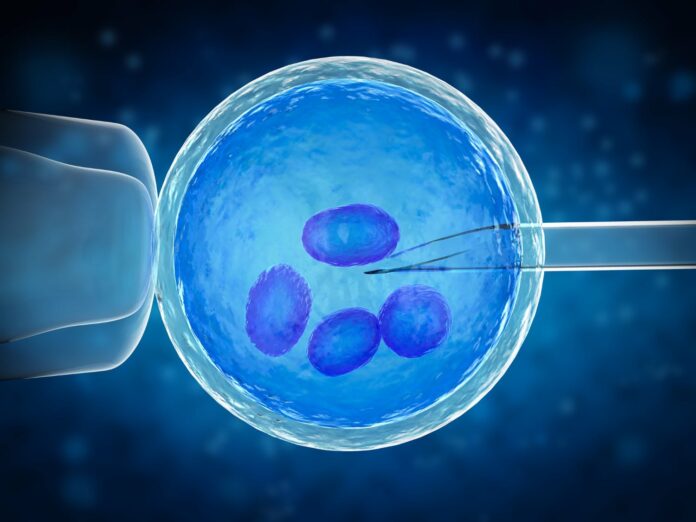In a recent study, scientists compared the genetic profiles of human 8-cell-like cells created in the lab with those of actual human embryos. Understanding how genes work in early human development is essential, but it’s been hard to study because of ethical concerns and a lack of lab models. To learn more, five different groups of researchers have made these 8-cell-like cells from stem cells using various methods. In a new study, scientists are comparing the genetic activity of these lab-grown cells with actual human embryos to make them useful for research.
The beginning of when genes specific to embryos become active, known as embryonic genome activation (EGA), is an essential part of how organisms develop. Scientist learned a bit about EGA in mice, but we need to know more about it in humans. This is because it’s tough to study human EGA due to a lack of lab models and rules about using human embryos in research. So, need of cell models that act like human embryos at a particular stage when cells start to duplicate is essential.
Five scientists devised different ways to create ‘human 8-cell-like cells’ (8CLCs) to make this possible. These cells are a small group of cells taken from human pluripotent stem cells (hPSCs) that are very similar to the 8-cell stage of an embryo. Some groups found 8CLCs in one way, while others used different methods. They all used single-cell RNA sequencing to confirm that these cells are 8CLCs. It’s not sure yet how similar or different these 8CLC groups are from each other.

In a recent study, scientists from Chiba University and Karolinska Institutet in Sweden and the University of Helsinki in Finland worked together to fill in some gaps in our knowledge. They compared the genetic information of 8-cell-like cells (8CLCs) made by different research groups, including their own, with actual 8-cell embryos. They shared their findings online on July 20, 2023, and published them in the Stem Cell Reports journal on August 8, 2023.
To do this, they combined the genetic data from the 8CLCs with data from two sets of actual human embryos, one from Petropoulos et al. and another from Yan et al. The Yan et al. data had information about more mature cells and embryos. In contrast, the Petropoulos et al. data covered the period from the 8-cell stage to day seven of embryo development.
They hope these discoveries will inspire more research into early human embryo development. Dr. Yoshihara said,” These lab-grown cell models will let us study the beginning of human life without ethical problems. Plus, it solves the issue of having too few samples for research because we can make many reprogrammed cells simultaneously.”
Dr. Masahito Yoshihara is an Associate Professor at Chiba University in Japan and a Visiting Researcher at Karolinska Institutet in Sweden. He focuses on understanding how genes work in diseases using advanced techniques. His interests include stem cells, regenerative medicine, and eye-related research. He’s published over 35 papers in respected journals, which have been cited nearly 1,000 times.
In conclusion, the study represents a significant step forward in unraveling the mysteries of early human embryonic development. It holds the promise of opening new avenues of research with far-reaching implications for fields such as regenerative medicine and developmental biology.
Journal Reference:
- Masahito Yoshihara, Juha Kere. Transcriptomic differences between human 8-cell-like cells reprogrammed with different methods. Stem cell. DOI: 10.1016/j.stemcr.2023.06.009.
